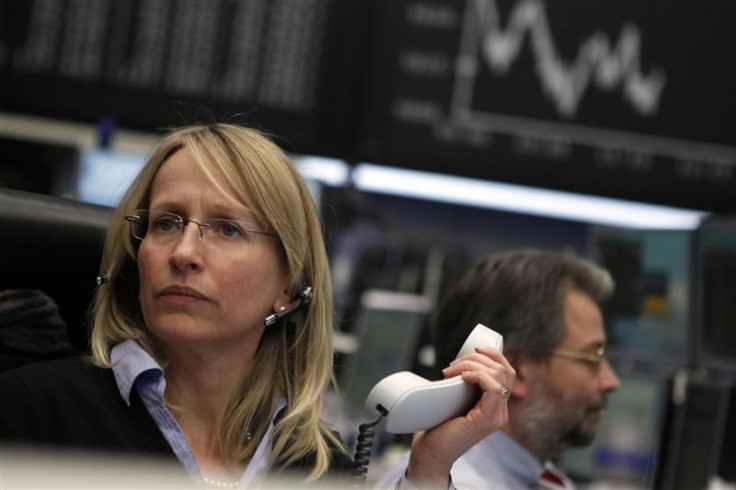European Markets Mixed As Stimulus Optimism Fades

European markets were mixed Tuesday as investor confidence was weighed down by concerns that the debt crisis faced by the euro zone is intensifying as optimism about the stimulus measures began to fade.
The French CAC 40 index was down 0.23 percent or 7.95 points to 3489.27. Shares of GDF Suez fell 4.68 percent and those of Renault SA dropped 0.92 percent.
London’s FTSE 100 index was marginally up 0.02 percent or 1.16 points to 5840. Shares of Petrofac Ltd rose 0.75 percent and those of Bunzl PLC gained 0.73 percent.
The German DAX 30 index declined 0.29 percent or 21.19 points to 7391.97. Shares of Continental AG fell 4.42 percent and shares of Volkswagen AG dropped 1.36 percent.
Spain's IBEX 35 was marginally up 0.07 percent or 6 points to 8144.40. Shares of Acciona SA rose 2.44 percent and those of Abengoa SA advanced 1.03 percent.
German Chancellor Angela Merkel and the European Central Bank President Mario Draghi will be speaking at the annual “Day of the German Industries” event organized by the Federation of German Industries in Berlin Tuesday. Investors will be watching these speeches trying to find indications about further steps to implement the ECB’s bond purchasing measures announced earlier this month.
Meanwhile, market sentiment turned negative with no further progress by Spain to ask for a bailout out. “Risk measures continue to creep higher as a host of worries especially the lack of traction in the euro zone towards a Spanish agreement on a bailout and inability of Greece to agree on deficit cuts, afflicted markets,” Credit Agricole said in a note.
Also September’s fall in the German Ifo business survey was a reminder that even the euro zone’s strongest economies are suffering from a severe economic downturn. The fall in the headline composite Business Climate Indicator, from 102.3 to 101.4, was a disappointment after the improvement in the German PMI survey and relatively positive tone of the latest hard data.
The deterioration was driven by declines in both the current conditions and expectations indices. The downturn has probably mainly reflected the weakening demand for German exports, particularly from elsewhere in the euro zone.
© Copyright IBTimes 2024. All rights reserved.





















